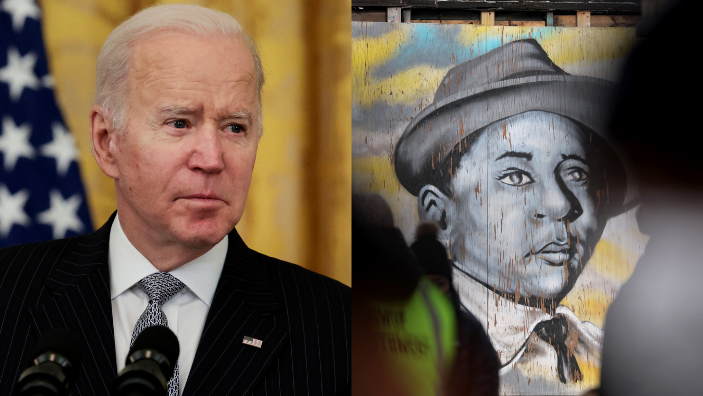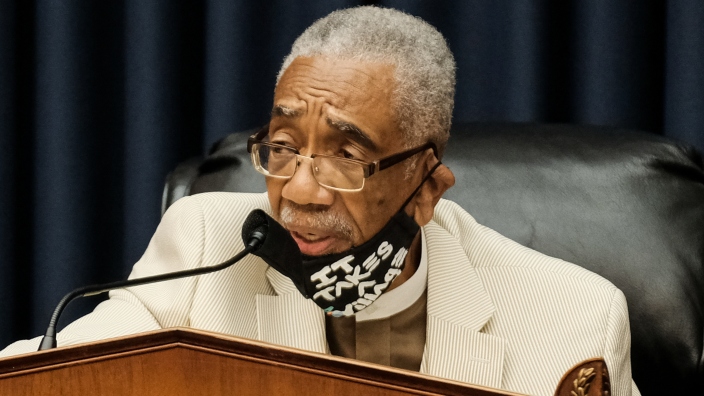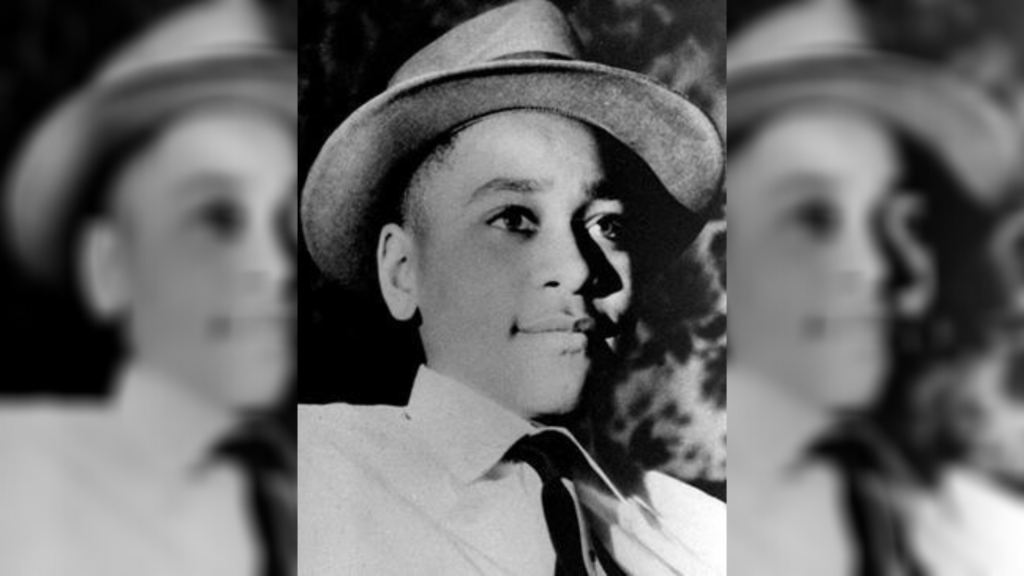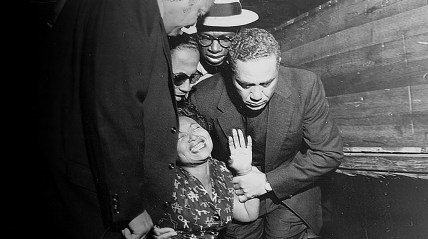President Biden will soon sign Emmett Till Antilynching Act — some say there’s more work to be done
EXCLUSIVE: As members of Congress tout the landmark hate crime bill, there are also calls for justice in Emmett Till's murder and accountability for police.

President Joe Biden will soon sign into law the nation’s first federal anti-lynching legislation that lawmakers have touted as a signal of progress in the centuries-long history of racial violence in the United States.
But even as the bill named after Emmett Till – a 14-year-old Black boy lynched in Mississippi by a white mob in 1955 – is set to become law, some say there’s more work to be done.
After more than 200 attempts in a little over a century to make lynching a federal hate crime, the United States Congress successfully passed the Emmett Till Antilynching Act on Monday, sending the landmark bill to President Biden’s desk.
The legislation will by law establish lynching as an offense made by a person conspiring to commit a hate crime that results in someone’s death or serious bodily injury. Members of Congress, particularly those involved in the drafting of the bill, championed it as a watershed moment for the country after decades of racial violence committed mostly in the post-slavery south.

“After over 100 years and 200 failed attempts to pass anti-lynching legislation, America is finally about to make this shameful, hateful practice a federal crime and take a critical step towards reckoning with our nation’s history of racialized violence,” U.S. Senator Cory Booker of New Jersey said in a statement to theGrio.
“This bill will not undo the trauma and pain of the past, but the federal government will finally be saying what it should have done over a century ago. We will not tolerate hatred, violence, and brutality against our fellow Americans.”
U.S. Congressman Bobby Rush of Illinois, who reintroduced the bill in the U.S. House, was instrumental in the drafting of the Emmett Till Antilynching Act and getting it passed — nearly 105 years after U.S. Representative Dyer Leonidas C. Dyer of Missouri introduced H.R. 11279 in 1918.
“The repeated obstruction of antilynching legislation in Congress over decades has been a national embarrassment and a painful affront to the African American community,” Rep. Rush said in a statement to theGrio. “The Emmett Till Antilynching Act will ensure that anyone who commits the monstrous act of lynching will be prosecuted under federal hate crime laws — as they should have been all along — and will send a clear message that our nation is finally willing to reckon with the gruesome history of lynching in America.”

While the passing of the lynching bill named in Emmett Till’s honor will finally bring federal accountability for hate crimes targeting Black and minority communities, the family of Till says there is still work left to be done in seeking justice for the teen’s heinous murder.
“There is still the unsolved case of Emmett. There’s still no one that’s been held accountable for his lynching,” said Deborah Watts, a cousin of Emmett Till and executive director of the Emmett Till Legacy Foundation, told theGrio. “We have one last known living accomplice that can be brought to justice, and we are asking for that. That would put the icing on the cake.”
Though the Department of Justice closed the cold case of Emmett Till’s lynching last year, The Emmett Till Legacy Foundation continues to push a petition seeking to name Carolyn Bryant Donham, the white woman who admitted that she lied about Emmett sexually harassing her, as an accomplice to his murder.
“I think it’s a wonderful way that our country can begin this reckoning with our racial pain and with racial discrimination and the terrorism that was brought upon our people in the past and continuing even today,” said Watts, who told theGrio that Rep. Rush and his staff reached out to the family and foundation to get their support and help in amplifying bill.
She added, “We can’t bring Emmett back or any of the thousands of others whose lives have been stolen by these horrific acts of racial terror. But we can do something this time to turn this page in our history books and also put it on record.”

Dr. Ersula Ore, a professor of African American studies at Arizona State University and author of “Lynching: Violence, Rhetoric, and American Identity,” told theGrio that while the passing of the Emmett Till Antilynching Act is “historically significant” it is “largely symbolical” and doesn’t go far enough.
“[The bill] operates primarily as a means of virtue signaling as opposed to having the teeth needed to be structurally transformative,” said Dr. Ore. She believes the legislation fails to address the broader issue of white supremacy and policing, which she sees as modern-day lynching.
“Because this legislation is gutted of the power to hold white supremacy in all its shades–blue included–accountable, I worry that efforts to apply it in the ritualized murder of Black men and women by police will fail because the legislation does not address the protections of qualified immunity,” Ore told theGrio.
“As a practice historically enacted as a performance of American citizenship, lynching continues to be enacted as a means of policing the boundaries of American belonging. That this legislation remains silent on the historical and present-day correlation between lynching and anti-Black policing, speaks to the staying power of America’s ‘national crime,’” added Ore.
Listing examples of high-profile killings of Michael Brown and 12-year-old Tamir Rice (both killed in 2014), Ore noted that lynching of Black young men and boys is not a thing of the past and that in order to truly address racial violence in the United States, the federal government must also address the issue of police violence.

“It is partly because of this rhetorical campaign to save face that [these] killings…are defined as instances of self-defense, legal shooting, or benign policing as opposed to what they are, which are lynchings,” said Ore.
The Biden White House is currently working on executive orders to enact federal police reform after Congress failed to pass the George Floyd Justice In Policing Act. The bill would establish sweeping police accountability measures, including making it more challenging for law enforcement officers to get immunity from prosecutions involving civilian deaths.
Watts of The Emmett Till Legacy Foundation said that while modern-day lynchings are “still occurring” — citing the murder of Ahmaud Arbery as a glaring example — she told theGrio that she still believes the antilynching bill in her cousin’s name sends a powerful message.
“[It] makes it clear to those that may think about committing these kinds of acts, that the hatred and the terrorism that fueled our country and that fueled Emmett’s lynching — that is still alive today — will be prosecuted [and] that people will be made to answer to those disastrous deeds that have been brought upon African Americans.”
TheGrio is now on your TV via Apple TV, Amazon Fire, Roku, and Android TV. Also, please download theGrio mobile apps today!”



